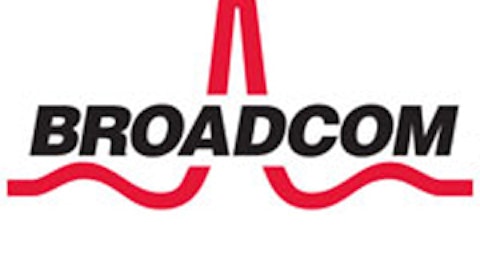Shares of Gogo have bounced around the $10-$16 range since its IPO — down nearly 20% since its debut. Bad initial month notwithstanding, the Itasca-based in-flight Wi-Fi provider raised $187 million in its initial public offering. This capital will help bolster Gogo broadband technology that allows flyers to connect to the web via their smartphones, tablets and laptops. Many are sounding the alarm on Gogo, but they are being premature — Gogo will succeed as long as people want to use the internet.

In an age where air travelers are price conscious, a service like Gogo will be seen as a real value add. Airlines can offer this service and customers won’t care about zero leg room or stale peanuts. Want to make people happy — let them check their Facebook account. Customers include four of the five biggest U.S. airlines — United, Delta, American and US Airways — which charge passengers for internet access. Fractional provider NetJets currently uses Gogo for in-flight Internet connectivity.
Up in the Air
Gogo posted a net loss of $32.45 million on $70.75 million in revenue in the first three months of 2013, compared with a loss of $17.6 million on $54.3 million in revenue during the year-earlier period. Many have “dissed” Gogo because the current performance is slow, users can’t (gasp) get YouTube. Gogo has taken setups to fix this issue — travelers want video and Gogo must deliver. To beef up its network, Gogo has secured a blanket license to operate 1,000 Ku-band satellite airplanes. The FCC granted the licence based on Gogo’s deal with Intelsat to provide global satellite coverage.
Gogo’s agreement with Intelsat gives Gogo access to the three Intelsat communications satellites. These satellites will provide high-speed connectivity for air travelers crossing the Atlantic and Pacific oceans. These satellites can also provide coverage for South America, Asia, Africa and Australia. Between Gogo’s mobile broadband, cellular towers and access to Intelsat’s 3 communications satellites, Gogo will be able to provide quality tiered domestic and international internet connectivity services for another decade.
Gogo uses a network of mobile broadband cellular towers that are beamed up instead of beamed down — creating an uninterrupted network for air travelers. The Gogo network currently covers the entire continental United States. The Gogo technology automatically selects the best tower signal to provide users a strong Internet connection. Gogo Internet operates on wireless signals provided by Gogo’s Air-To-Ground network, a reliable network of cellular towers spanning from sea to shining sea. This combination of cellular and satellite technology effectively powers the Gogo Network. While innovative and affordable, network signal strength and coverage can vary due to altitude and network traffic volume. Gogo offers three affordable In-Air Internet passes, starting from $14, for the All-Day pass, up to $42 for the Gogo Unlimited package.
Competition is Good
Gogo does have some strong competition in this space. One direct competitor is Row 44. Row 44 has a powerful in-flight WiFi solution that Southwest Airlines used for internet connectivity. Both Row 44 and Gogo use the Ku-Band satellite constellation, so if federal rules on in-flight electronic devices are changed, potentially giving passengers more options for connecting to the Internet, Gogo has the infrastructure in place.
Ironically, a major threat to Gogo may be Google. Google’s Project Loon may potentially provide a cheaper alternative to mobile broadband cellular towers and communications satellites. The jury is still out on using balloons floating in the stratosphere, so Gogo currently has a clear advantage.
Echostar Corporation (NASDAQ:SATS), though not a direct competitor to Gogo, could see profit if another firm decided to enter this space. Echostar Corporation (NASDAQ:SATS) has a satellite fleet of 14, five of which are less than ten years old. While Echostar Corporation (NASDAQ:SATS) has not been a major player in airplane internet connectivity, it’s is a major player in satellite communications.
The National Weather Service, or NWS, recently awarded Echostar Corporation (NASDAQ:SATS) a contract to provide a satellite back-up solution for NWS’s Operational Systems Network. The Operational Systems Network provides radar, meteorological and hydrological data for Weather Forecast Offices nationwide. As Echostar Corporation (NASDAQ:SATS)’s satellite fleet grows it will be awarded more of these vital and profitable contracts — look for an Echostar Corporation (NASDAQ:SATS) Gogo “mash-up” in the future.
Loral Space & Communications Ltd. (NASDAQ:LORL) is a satellite manufacturing company that will profit from expanding airplane internet connectivity. Loral Space & Communications Ltd. (NASDAQ:LORL) has produced more satellites for broadband communications than any company and has built the highest capacity broadband satellites — delivering 100 gigabits per second throughput. There are 48 satellites based on Loral Space & Communications Ltd. (NASDAQ:LORL)’s 1300 series platform currently in service — not to mention Loral Space & Communications Ltd. (NASDAQ:LORL) stock also pays a hefty $13 dividend.
Intelsat recently selected Loral to provide a communications satellite for the Western hemisphere. This is the 50th satellite Loral Space & Communications Ltd. (NASDAQ:LORL) has built for Intelsat. Loral Space & Communications Ltd. (NASDAQ:LORL) has a forty year history building satellites — this 50th spacecraft is a major milestone not just for Loral, but for the whole satellite manufacturing industry. EchoStar and Loral will continue to get a big piece of the pie — they own and or make the satellites.
These satellite machine-to-machine services will help Iridium Communications Inc. (NASDAQ:IRDM) maximize its Iridium NEXT program. The Iridium NEXT constellation — a cluster of low-Earth orbiting inter-linked satellites is scheduled to launch in 2015. This new program will consist of satellite of 81 spacecraft (66 satellites, 6 orbiting spares and 9 earthbound back-up satellites) that will power the next generation of Iridium Communications Inc. (NASDAQ:IRDM) satellite communications.
The battle between Gogo and Iridium will drive more innovation and create much needed competition in the satellite mobile service space. Gogo needs to provide a stellar service to outpace Iridium and Row 44 while keeping Loral and EchoStar from entering in-flight connectivity services.
Cleared for takeoff
Gogo’s Internet service is available on over 80% of all North America Wi-Fi-enabled passenger airplanes. The company is growing rapidly, but it is also unprofitable — Gogo lost $95.6 million in 2012. Access to those Intelsat communications satellites doesn’t come cheap. Currently, only 6% of passengers pay for internet, but that will change. Gogo had a bumpy takeoff, but North American air travelers internet addiction and Gogo’s growing infrastructure will ensure a smooth ride for Gogo investors.
John Moore has no position in any stocks mentioned. The Motley Fool owns shares of Iridium Communications. John is a member of The Motley Fool Blog Network — entries represent the personal opinion of the blogger and are not formally edited.
The article Why Gogo Will Succeed originally appeared on Fool.com is written by John Moore.
Copyright © 1995 – 2013 The Motley Fool, LLC. All rights reserved. The Motley Fool has a disclosure policy.





